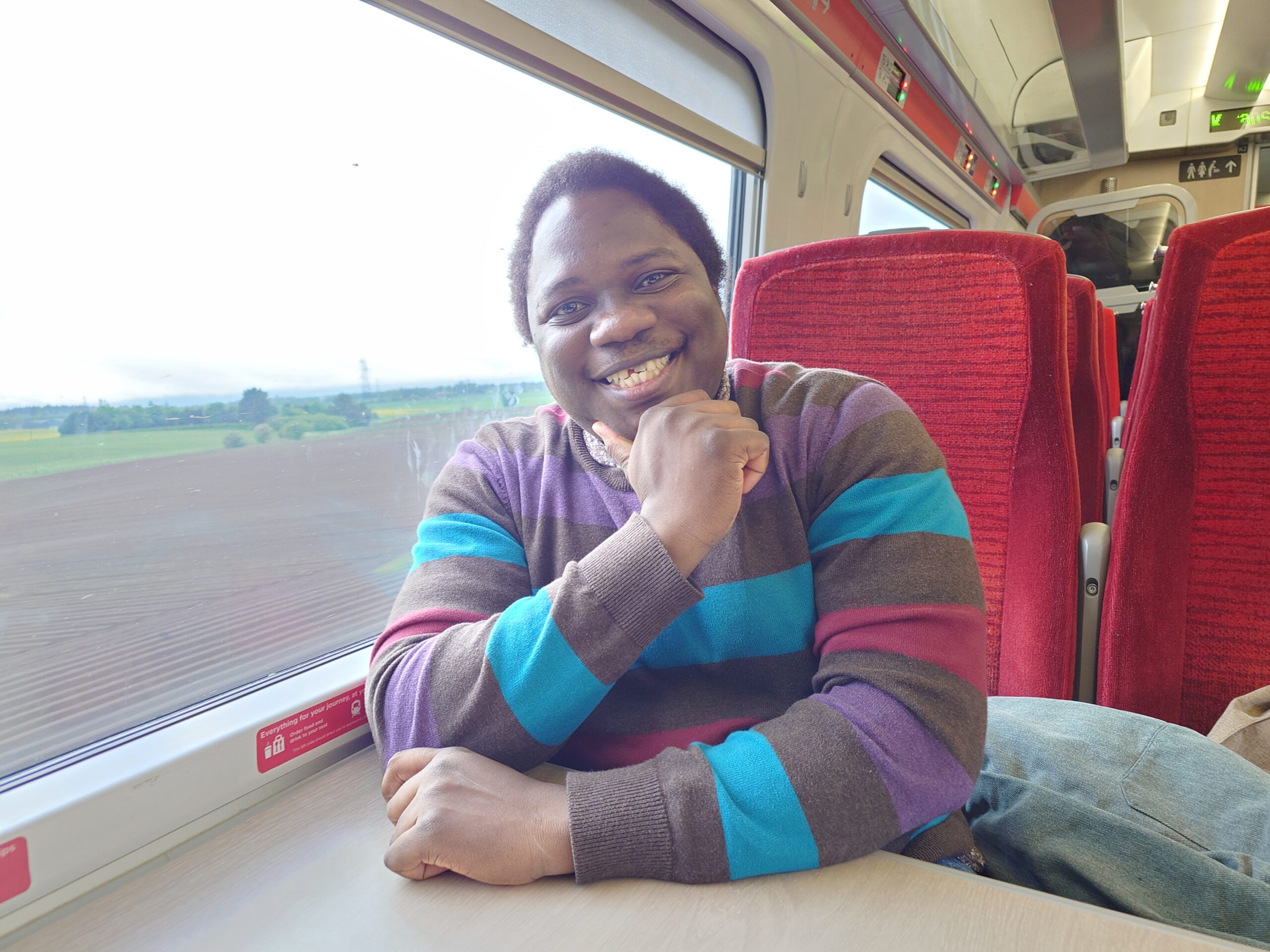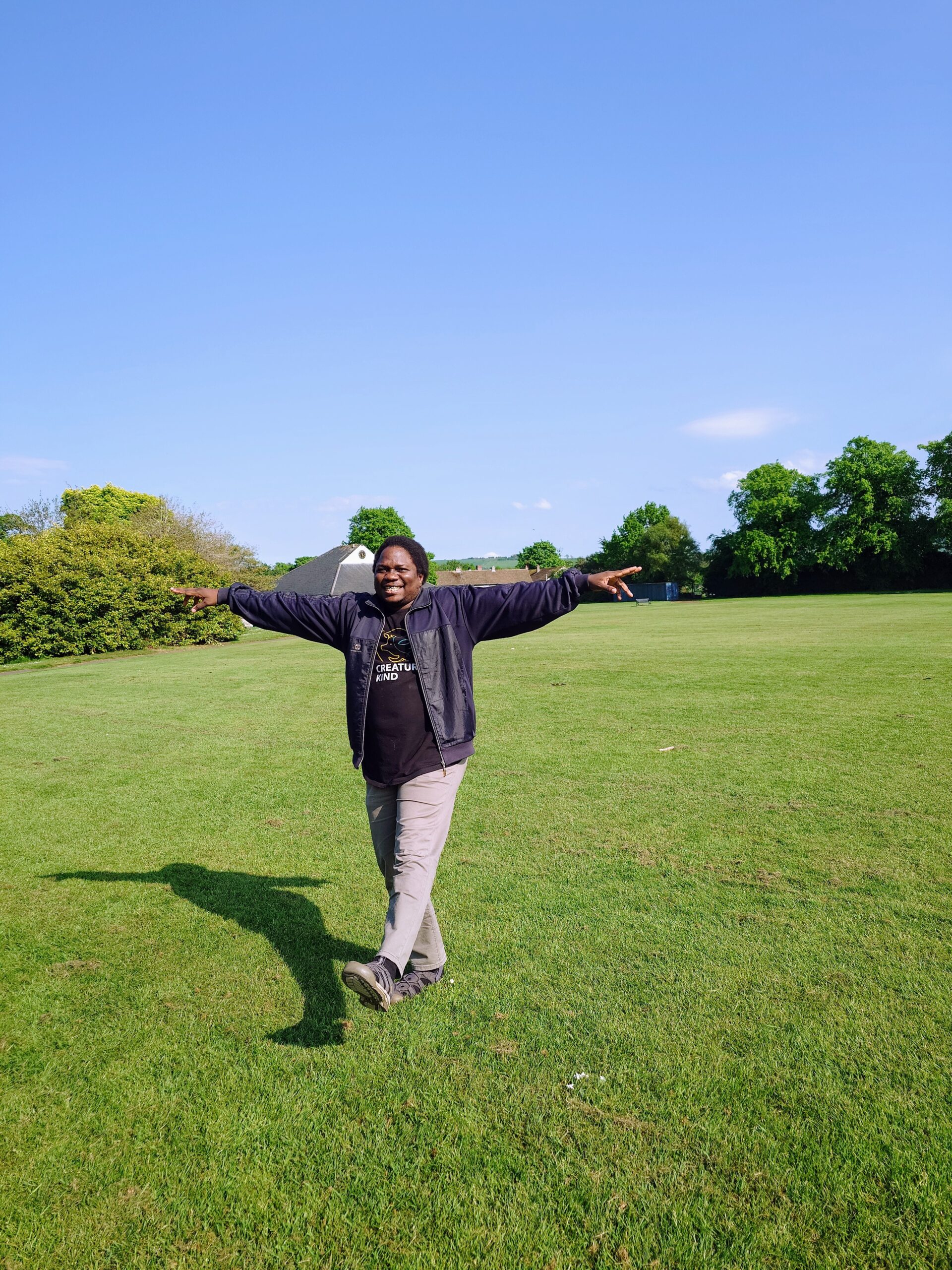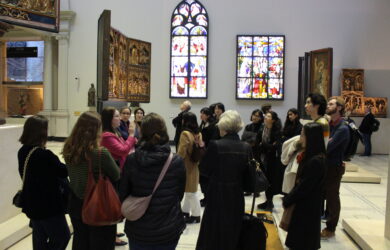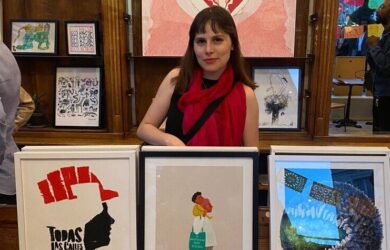
Avweroswo Akpojaro on his research into the nature of the Holy Spirit and how he came to be studying it.
I felt people were being manipulated and exploited by this hazy concept of the Holy Spirit and that they were very vulnerable because the Holy Spirit was held in such high esteem as being the very essence of God. But I wondered what this Holy Spirit was.
Avweroswo Akpojaro
Avweroswo Akpojaro was not very religious as a child, but it was when he was reading the Bible as a teenager that he had a powerful religious experience and started to study religious texts. He always had questions, however, relating to Christian practice. Although he studied Geology at university and went into teaching, he continued to read religious texts and now finds himself at the University of Cambridge doing a PhD in Divinity, having overcome many obstacles to get here. His persistence is testament to the strength of his intellectual need to address those early questions.
Avweroswo [2024] was born in Warri in Delta State in southern Nigeria, the second of two children. His father was working as a teacher when he was born and then went into banking. His mother was a trader. Both parents encouraged Avweroswo to read from an early age and his aptitude for reading and learning meant he was always striving to be at the top of his class. He took to science early on and had pictures of Einstein and Newton at his home and when his family moved to Lagos he chose to specialise in science at the Methodist Boys’ High School. As well as being a prefect, he joined the Junior Engineers and Technicians Society which organised talks and events where students could share ideas about science.
When he finished school Avweroswo wanted to go into medicine as it was seen as a respected field. But medicine is very competitive and he was instead offered a course in Geology at the University of Benin. Geology wasn’t a subject he was particularly interested in so he studied Physics, Chemistry, Biology and ancient Astronomy on the side.
Undergraduate studies and challenges
 Avweroswo started his studies in 2007 as his family faced a series of challenges. For instance, just as he was starting university, Avweroswo’s father lost his job as assistant manager of a bank and struggled to find another. The family needed money so they had to move into an uncompleted house his father had been building in Lagos. It had no roof, windows, electricity, running water or toilet. “When it rained you could hear the sound of the rain on the plastic covering. Rats could get into the house. We had to take turns to bathe outside and ate only beans, cooked over a fire. It was a terrible place to live,” says Avweroswo. At university he was often hungry and relied on a friend for food and a place to stay.
Avweroswo started his studies in 2007 as his family faced a series of challenges. For instance, just as he was starting university, Avweroswo’s father lost his job as assistant manager of a bank and struggled to find another. The family needed money so they had to move into an uncompleted house his father had been building in Lagos. It had no roof, windows, electricity, running water or toilet. “When it rained you could hear the sound of the rain on the plastic covering. Rats could get into the house. We had to take turns to bathe outside and ate only beans, cooked over a fire. It was a terrible place to live,” says Avweroswo. At university he was often hungry and relied on a friend for food and a place to stay.
At university Avweroswo became involved with a Christian fellowship, having earlier developed an interest in Christianity. When he was growing up Avweroswo’s family didn’t go to church. Avweroswo himself wasn’t interested in religious studies as a young child. However, in July 2007, he had a profound experience which changed his views. He was in his room reading the Bible because he was keen to know more about it than a rival at school. He recalls feeling overwhelmed and that he had a clarity about the meaning of life that he had not previously experienced. His sister came into the room and he recalls that he couldn’t even speak. From then on, Avweroswo read the Bible regularly and went to church. However, as a new convert, he had questions about some of the practices he observed there and those questions played on his mind.
On graduation, he returned home to Lagos. His father had had a serious accident in his job as a security guard and burnt his hands badly, leaving him badly scarred. As Avweroswo prepared to move East to do youth service, teaching Geography, his father suffered a stroke which left him partially paralysed, throwing the family into a more severe financial crisis. Avweroswo was appointed zonal leader of the Christian fellowship he belonged to in the region he was posted to and members of the fellowship were able to rent a house together and share meals.
Teaching
At the end of his posting, Avweroswo returned to Lagos and began teaching in a primary school. He soon decided it was not for him and quit. At the same time he continued to read religious books and his questions about the way Christianity was being used and manipulated, particularly in relation to the Holy Spirit, increased. “I felt people were being manipulated and exploited by this hazy concept of the Holy Spirit and that they were very vulnerable because the Holy Spirit was held in such high esteem as being the very essence of God. But I wondered what this Holy Spirit was. I didn’t find many answers from the books I was reading,” he says.
Through a friend he got a job at another primary school where he was mentored by the owner of the school and taught the organisational skills he needed to succeed. Over the next five years Avweroswo was promoted to head teacher. There he met his wife who is a teacher. At around this time, Avweroswo’s family sold their house in Lagos and moved away. Avweroswo remained in Lagos for work, but had little money to pay for his upkeep as he had to send money to his family so, once again, he was helped through his church to find somewhere to live. At one point he was living in a cramped, hot security post on a residential compound.
Theology
Avweroswo had not, however, given up on his desire to pursue Theology. His mother had been praying for someone to help fund his studies, having been influenced by Avweroswo to become a practising Christian. Just after she visited him he received an email from George Hunsinger, a professor at Princeton Theological Seminary, who had seen his potential in his posts on a Theology group on Facebook. He offered to fund Avweroswo’s theological education. So just before Covid Avweroswo decided to leave his job and devote himself to religious studies.
Professor Hunsinger asked Avweroswo which university he would like to study at and he opted for the University of Pretoria, but due to some challenges in South Africa he ended up attending the Theological College of Northern Nigeria where he did a postgraduate diploma in Theology and was a CreatureKind fellow, organising seminars on the welfare of animals and plants from a religious perspective.
Avweroswo was determined not to let Professor Hunsinger down or to let the opportunity he had been given go to waste. He studied hard and found that Theology came fairly easy to him because he had been reading books on religion for so many years. He finished the course at the top of his class. He then went on to do a master’s in Divinity, again sponsored by Professor Hunsinger.
During that period Avweroswo presented several papers at online international theology conferences, receiving very positive feedback. He then applied for a master’s in Divinity at the University of Edinburgh, obtaining a Kirby Laing Foundation scholarship which covered his full costs. He and his wife and son [born in 2022] moved to Scotland in 2023 where his wife worked as a receptionist in a hotel and Avweroswo balanced his studies with childcare.
His dissertation was on Friedrich Schleiermacher’s eschatology. It explored questions about the ultimate end of human existence, conceptions of immortality and problems with the retention of personal identity after resurrection. Avweroswo graduated from his Master of Theology degree at Edinburgh with a distinction.
The Holy Spirit
Schleiermacher’s writing on the subject of the Holy Spirit took Avweroswo back to some of his original questions about the Holy Spirit, including the validity of ‘speaking in tongues’ and the potential for the Holy Spirit to be used to manipulate people, for instance, to give money to the church. He says it is common, for instance, for Nigerian churchgoers to give the first month of their annual salary to the Holy Spirit.
Avweroswo will explore these and other questions from a theological perspective in his PhD in Divinity at the University of Cambridge. He says that starting public conversations about the nature of the Holy Spirit are difficult in Nigeria, but he feels having greater expertise in the form of a PhD will mean they may be more willing to listen to what he has to say. He states: “Schleiermacher’s doctrine of the Spirit is of particular interest to me precisely because of its simplicity, depth, openness to social engagement and potential to combat harmful ideas about the Spirit in Christian communities. I also aim to show its relevance for Christian theology and the community of believers both in my country and beyond.”












